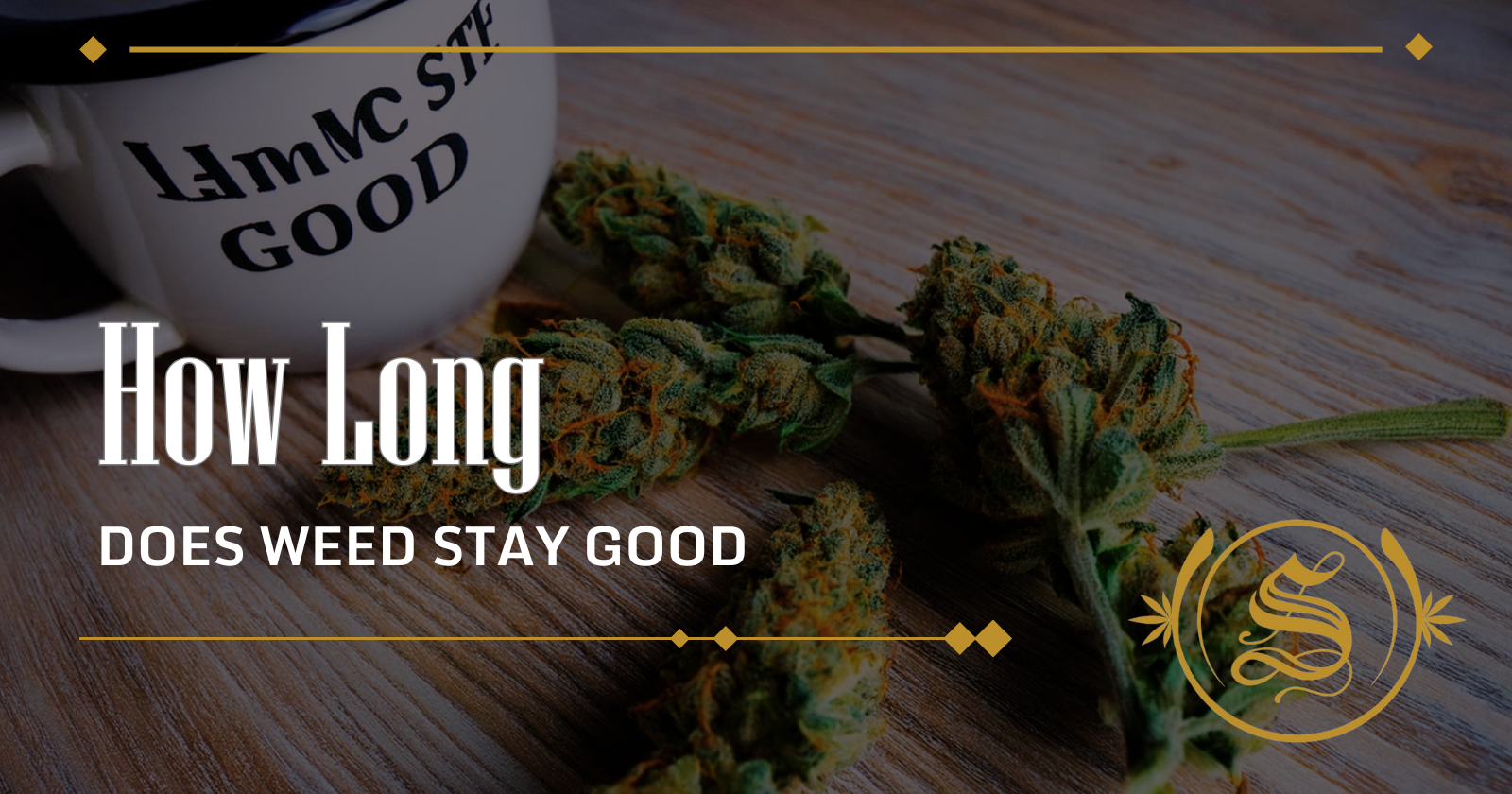Iftikhar Alam
Author
Reviewed by Cannabis Experts
Published on: November 18, 2024 | Updated on: November 21, 2024
Cannabis contains many compounds called cannabinoids that impart specific characteristics to this popular plant. For example, THC is a compound responsible for producing the high associated with smoking weed. Similarly, other minor cannabinoids, such as CBD and CBN, are also present.
In recent years, cannabinol (CBN) has gained popularity due to its therapeutic effects. It has a positive impact on your sleep cycle. Therefore, many weed users consume CBN products for medicinal purposes.
However, this cannabinoid differs from THC and CBD. What is CBN, and how does it differ from other cannabinoids? Let’s find out.
What Is CBN in Weed?
The marijuana plant contains more than a hundred different cannabinoids. Each compound differs from another and produces different results and benefits.
So, what is CBN in weed, and how does it affect the human body?
The compounds present in the marijuana plant are very different from each other and produce different effects. Their results and benefits also differ from one compound to another.
Cannabinol (CBN) was the first cannabinoid discovered from the cannabis plant. It occurs in the plant as it starts to age. When THC heats up or gets exposed to oxygen, air, and light, it degrades to form CBN. Therefore, high levels of CBN are found in dry, aged weeds.
It is a less potent cannabinoid that does not produce intoxicating psychoactive effects. Therefore, it is mostly used for therapeutic benefits.
Mechanism of Action
As CBN is a cannabinoid, it interacts with the specific receptors present in the central nervous system. The endocannabinoid system of neurotransmitters in the body regulates many physiological functions and responses, such as sleep, memory, mood, and appetite.
CBN affects the activity of neurotransmitters and hormones. It produces pain-relieving effects, improves sleep, and reduces inflammation.
How Does CBN Differ From Other Cannabinoids?
CBN is a different compound with unique properties. It may work through the same endocannabinoid system in the body, but it isn’t psychoactive.
Higher potency may produce mildly sedating effects, but it isn’t as potent as THC. This means that even if CBN produces relaxation, it does not have the ‘high’.
Besides THC, CBN shares many therapeutic effects with CBD, but the research is still in the early stages. It is too soon to conclude that CBN can outshine CBD for medicinal purposes.
However, CBN’s effect on the endocannabinoid system is different from how THC and CBD interact with the body. Therefore, CBN might offer unique benefits not found in other cannabinoids.
Potential Benefits of CBN
CBN offers numerous benefits. Here are the most common potential benefits of CBN.
- CBN acts as an antibacterial agent against some resistant bacterial strains.
- Used for stimulating appetite
- CBN helps with glaucoma
- Has anti-inflammatory properties
- Reduces joint pain in arthritis
- Works as a natural sleep aid
- Used for pain relief due to inflammation
- Alleviates symptoms of stress and anxiety
- Has neuroprotective properties
- Contributes to bone health
- Regulates mood
How to Use CBN?
Now that we know what is CBN in weed, let’s learn how to use this cannabinoid for therapeutic effects. You can consume CBN in the form of capsules, tinctures, and edibles.
1. CBN Tinctures and Oils
One common method of consuming cannabinoids is through tinctures and oils. They are a convenient dosage form.
You can consume CBN sublingually for quick absorption into the bloodstream. This method is also easy to use for immediate effects.
2. Edibles
CBN-infused edibles such as gummies, chocolates, or other snacks are a discreet way of consuming cannabinoids. You can take CBN through edibles. However, the effects are slow.
The body first digests the edibles before CBN is absorbed into the bloodstream. This is an ideal method for people who prefer long-lasting effects.
3. Vaping and Smoking
You can also take CBN through vaping or smoking cannabis strains that have a high concentration of CBN. Aged, dry cannabis has more CBN as THC degrades to form this compound.
However, THC slowly degrades into CBN. Environmental factors do speed up the degradation process. Hence, many manufacturers increase the CBN content through purposeful aging by exposure to oxygen.
Vaping and smoking cannabis strains with higher CBN content release it into the bloodstream through the lungs to produce immediate effects.
4. Topicals
CBN-infused creams, balms, or other topicals are used locally to apply them onto the skin. These are ideal for treating inflammation and relieving pain. Individuals with joint discomfort, neuropathic pain, and sleep problems often use topicals that contain CBN.
Does CBN Get You High?
CBN is a weaker cannabinoid that doesn’t produce the high we associate with THC consumption. Therefore, it isn’t a psychoactive compound.
It does produce relaxation and sedation but not the typical euphoria that alters mental state. Therefore, CBN has come under the spotlight for its therapeutic benefits without the psychoactive effects.
Is CBN Legal?
CBN falls under the same umbrella of cannabis laws. It is legal for therapeutic uses in the parts of the world where cannabis has gained a legal status.
CBN products are available at dispensaries where cannabis is legal for recreational and medicinal use. However, some regions with strict cannabis laws and prohibitions have not legalized other cannabinoids, such as CBN and CBD.
Potential Risks and Side Effects of CBN
As there is ongoing research on CBN, it is difficult to know much about its effect on the body. However, drowsiness and sedation are some common side effects of most cannabinoids.
CBN also causes drowsiness, especially if consumed with CBD. While this makes CBN an excellent sleep aid, the side effects may bother people who aren’t looking to use it for sleep.
Besides this, a positive drug test is also a side effect. The use of CBN leads to failed drug tests as it is metabolized into the byproducts that remain in the body. Upon drug testing, these metabolites are detected, resulting in a failed test.
Final Words
The current research regarding CBN and its therapeutic effects has made it quite popular. It has also become an essential ingredient in many CBD products as it boosts the therapeutic properties.
However, there aren’t sufficient claims regarding the long-term benefits of using CBN products. Therefore, it’s best to look into the potency of cannabis products and their effects and know what works best for your body.
Sources
Footnotes
- Maioli C, Mattoteia D, Amin HIM, Minassi A, Caprioglio D. Cannabinol: History, Syntheses, and Biological Profile of the Greatest “Minor” Cannabinoid. Plants (Basel). 2022;11(21):2896.
- Jaidee W, Siridechakorn I, Nessopa S, Wisuitiprot V, Chaiwangrach N, Ingkaninan K, Waranuch N. Kinetics of CBD, Δ9-THC Degradation and Cannabinol Formation in Cannabis Resin at Various Temperature and pH Conditions. Cannabis Cannabinoid Res. 2022;7(4):537–547.
- Appendino G, Gibbons S, Giana A, Pagani A, Grassi G, Stavri M, Smith E, Rahman MM. Antibacterial cannabinoids from Cannabis sativa: a structure-activity study. J Nat Prod. 2008;71(8):1427-30.
- Kogan NM, Mechoulam R. Cannabinoids in health and disease. Dialogues Clin Neurosci. 2007;9(4):413-430.
- Zurier RB, Burstein SH. Cannabinoids, inflammation, and fibrosis. FASEB J. 2016;30(11):3682-3689.
References
- Cannabinol. Science Direct. Accessed 09/29/2024.
- The cannabis plant. The University of Sydney. Accessed 09/29/2024.
- The endocannabinoid system: Essential and mysterious. Harvard Health Blog. Accessed 09/29/2024.
- CBD and CBN: What’s the difference? WebMD. Accessed 09/29/2024.
- CBD vs. CBN: What to know. Medical News Today. Accessed 09/29/2024.
- Sublingual and buccal medication administration. Healthline. Accessed 09/29/2024.
- CBD vs. THC: What’s the difference? Healthline. Accessed 09/29/2024.
The content provided on this blog is for informational purposes only and does not constitute medical, legal, or professional advice. Cannabis use is subject to local laws and regulations, which vary widely by jurisdiction. Always consult with a healthcare professional before starting any new treatment or altering an existing treatment regimen. The authors and publishers of this blog are not responsible for any actions taken based on the information provided herein. Use cannabis responsibly and in accordance with applicable laws. This blog is intended for adults aged 21 and over. The Sanctuary Dispensaries D186, D187.








